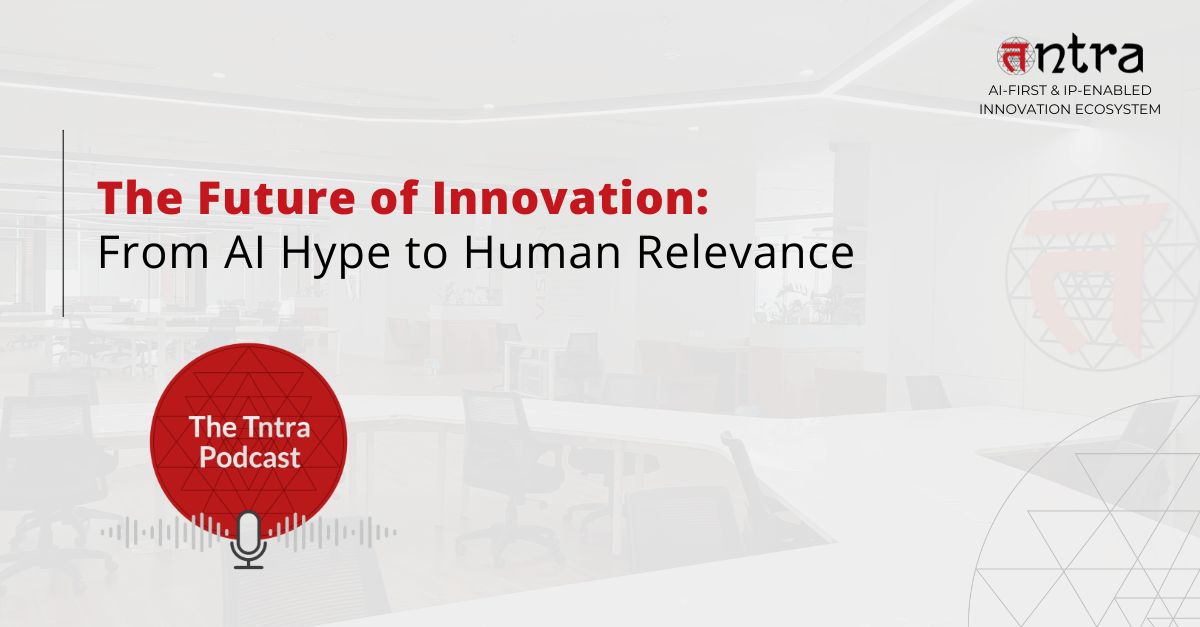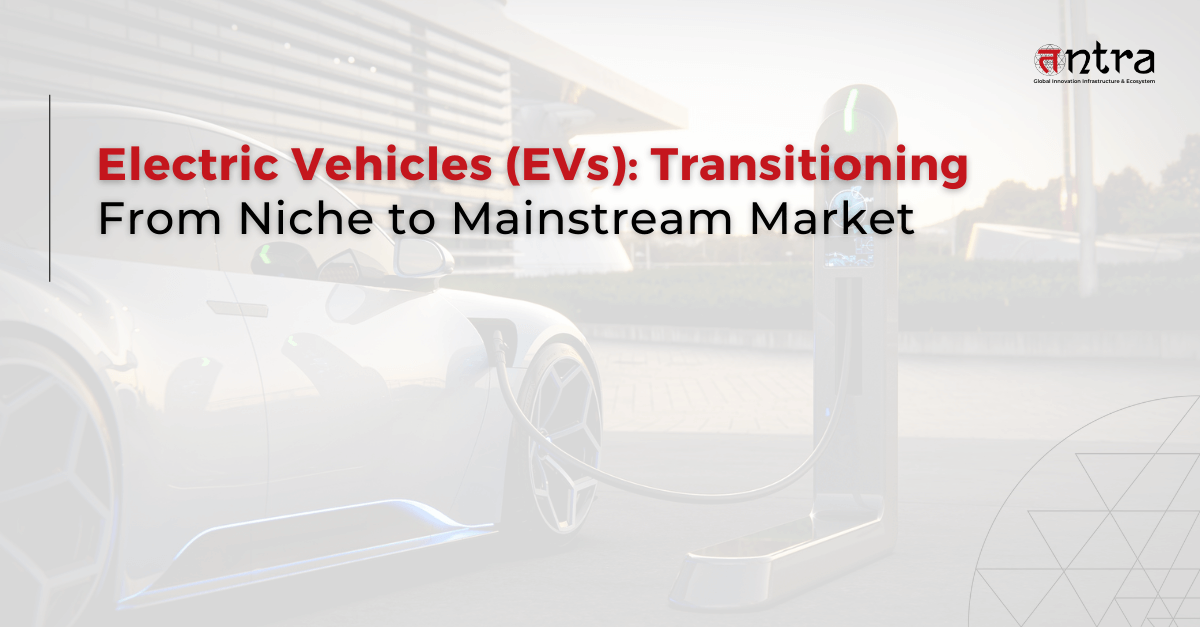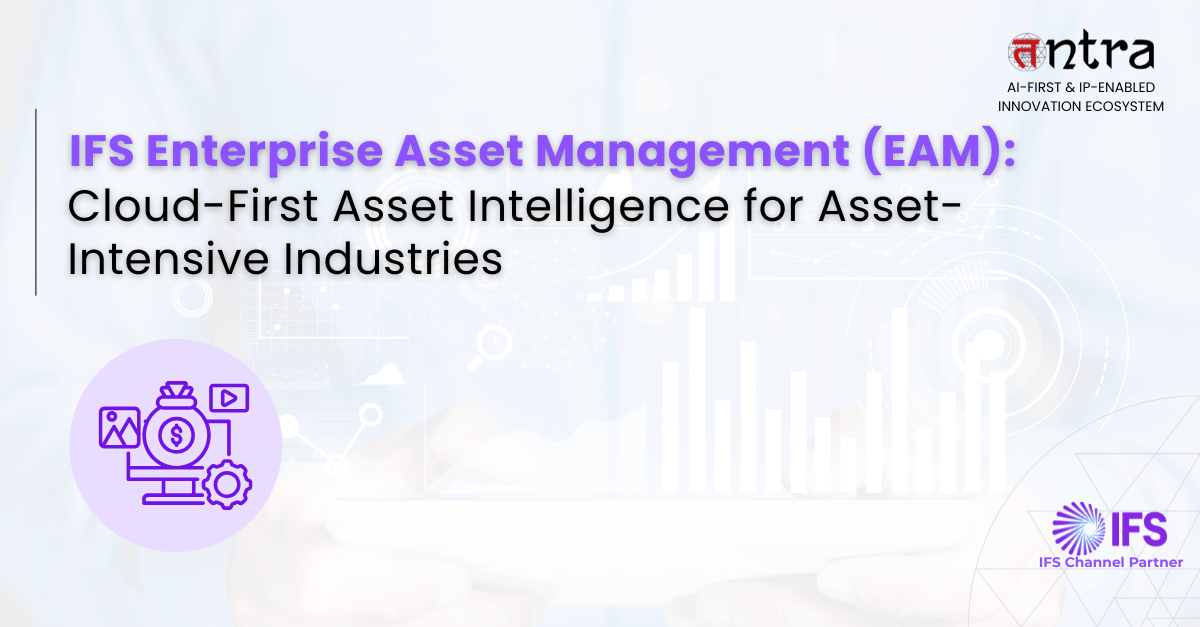
The Future of Innovation: From AI Hype to Human Relevance
Table of Contents
ToggleToday, it’s easy to forget that technology is only as meaningful as the innovation behind it. And innovation, in turn, is only as impactful as the people it serves.
For over three decades, Mehul Desai, Chairman & Co-Founder of Tntra, has built and deployed technology across continents – from the U.S. and Japan to India and Europe. A pioneer of mobile payments and digital finance, Mehul has witnessed how technology reshapes societies, industries, and even the very idea of progress.
And through it all, one observation has stayed constant for him:
Innovation, as it exists today, is neither efficient, inclusive, nor sustainable.
Innovation: Throwing Things at the Wall?
Despite all the progress humanity has made, Mehul believes the process of innovation still feels like throwing ideas at the wall and seeing what sticks. It’s inconsistent, often disconnected from lifelong learning, and rarely focused on long-term human development.
In his view, innovation today works in silos. The people driving it, the systems teaching it, and the institutions funding it often don’t talk to each other. As a result, ideas don’t grow into real solutions that make life better for everyone.
And that disconnect, he says, is something Tntra was built to solve.
The AI Race and the Question of Equity
As the world embraces artificial intelligence and prepares for artificial general intelligence (AGI), the stakes are rising. While AI promises unimaginable progress, it also threatens to widen the global divide.
Having lived through multiple AI hype cycles, Mehul puts things in perspective:
“I’ve now been involved in three of the five AI hype cycles and just like other technologies, the signal will stay and get strengthened as the noise fades away.”
A recent MIT report stated that 95% of companies have seen zero return on their generative AI investments. And Mehul isn’t surprised.
He predicts that, at least in the short term, AI will increase inequality, between the Global North and South, and even within developed economies. The resources that drive AI, data, hardware, and energy, are concentrated in the hands of a few nations and corporations.
But he’s also an optimist.
“Like many things in life, even technology gets commoditized and then comes under the control of a few powerful people and entities. That cycle is not going to break but within that do you see some equality developing? Eventually, yes!”
The Indian Innovation Paradox
India’s tech scene is vibrant, but Mehul points out a paradox: despite three decades of rapid economic reform, India hasn’t produced a single globally recognized technology product or app.
Why?
“Indians have become “traders” rather than “creators”) – and some related to institutional support and ecosystems! As we discussed earlier, I believe India needs its own highly “incestuous” or self-reinforcing ecosystem…once again, Tntra could be the catalyst!,” he says.
He explains that Indians naturally think “outside the box” because there’s no room inside the box. But that mindset alone doesn’t scale. What India needs, he believes, is a structured ecosystem, a self-reinforcing network where creativity can thrive sustainably, much like Silicon Valley or Boston.
“Governments can be most effective thru public policy and support is ensuring the underlying “utilities for innovation” are in place, and then incentivizing and almost unleashing the private sector to build the “usability” layers,” he adds.
And to get there, India must outgrow its dependency on external validation, including the obsession with H-1B visas. “it’s high time that Indian’s stop viewing themselves as a number – i.e how many H1B visas – and view themselves as a creative force, especially given our cultural DNA of becoming one with the Universe, we could be THE creative force for good,” he says.!
The Birth of Tntra: Building the Utility for Innovation
After 30 years in global technology, Mehul founded Tntra in 2020 ,at the peak of the pandemic, as a way to institutionalize everything he’d learned about innovation.
His vision was simple yet bold:
to build the utility layer of innovation so that creativity could scale efficiently, inclusively, and sustainably.
Tntra operates as an AI-first, IP-enabled global innovation ecosystem, a sandbox where entrepreneurs, enterprises, educators, and governments can translate ideas into risk-mitigated innovation. Its approach is rooted in the “3Ps”: Patents, Products, and People.
“We don’t just build technology,” Mehul explains. “We focus on helping entrepreneurs to enterprise to education providers to government agencies to society at large – transform Ideas into risk mitigated Innovation, along with linking Innovation to Lifelong Learning (i.e. Human Relevance) and eventually delivering Impact, whether it’s in the realm of HealthTech, EdTech, FinTech, etc.”
Tntra’s ecosystem combines AI-led platforms, advisory services, and engineering solutions across sectors like FinTech, HealthTech, and EdTech. It also runs an incubator, a venture fund with a non-traditional model, and an academy called Gurukula, focused on nurturing people for lifelong learning.
The GOAL? To make innovation not just efficient, but human.
SuperEconomies and Human Relevance
Two of Tntra’s most ambitious initiatives, SuperEconomies and Human Relevance, reflect Mehul’s belief that innovation must serve humanity, not the other way around.
SuperEconomies focuses on connecting GDP growth with the power of ideas, creating equitable, inclusive economic systems where creativity drives value, not just capital or resources.
Human Relevance, on the other hand, ensures that people remain essential in an increasingly AI-driven world.
For Mehul, innovation, lifelong learning, and impact must move together, as one continuous cycle. If any link breaks, the system becomes fragile.
And Tntra’s mission is to keep that cycle alive.
A Future Built on Ideas
Looking ahead, Mehul sees hope,not just for technology, but for humanity.
While AI and AGI will undoubtedly reshape economies and societies, they also present an opportunity: to build a world where innovation uplifts rather than divides.
He believes that the future of civilization depends on how we balance AI with human relevance.
His goal at Tntra is to ensure that innovation leads to impact, and that no human being is ever left behind.
If these ideas about innovation, equity, and the human side of technology spoke to you, you’ll love hearing it straight from Mehul Desai himself.
Listen to the full podcast episode and explore how Tntra is reimagining innovation for a more inclusive, sustainable, and human future.
For the Video Podcast: Watch the full episode here.





